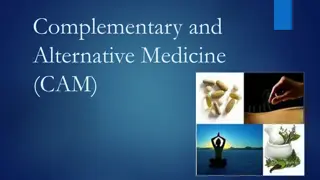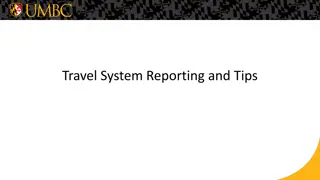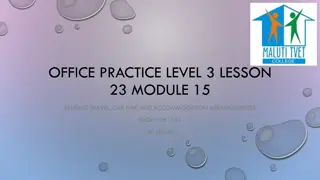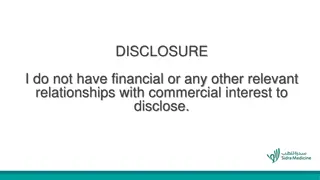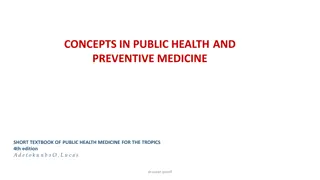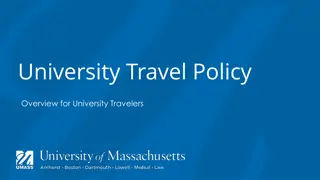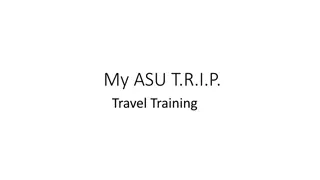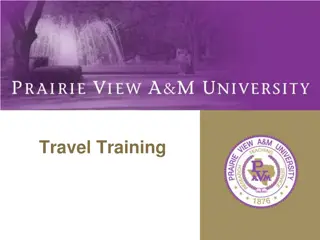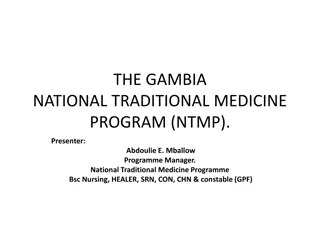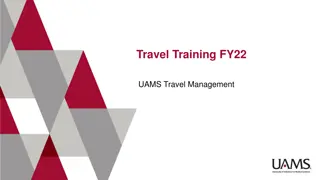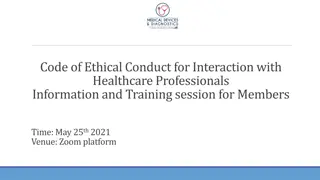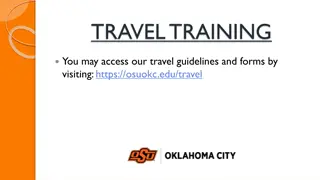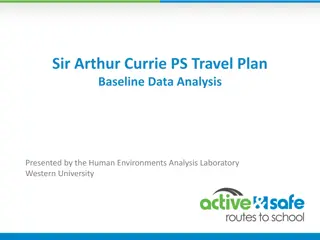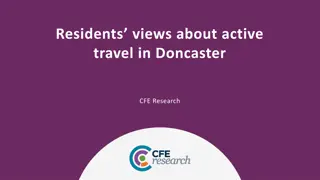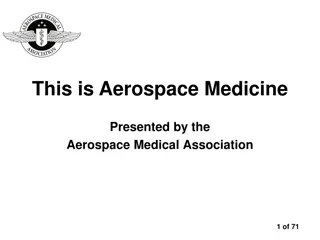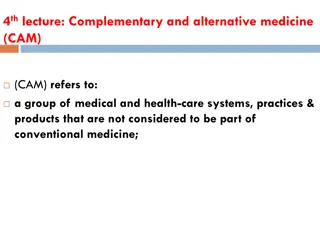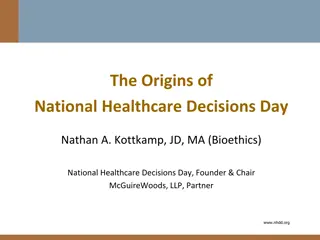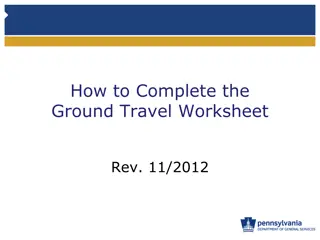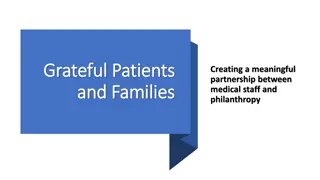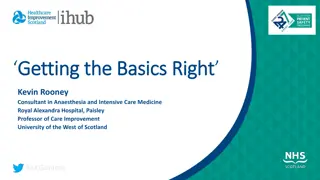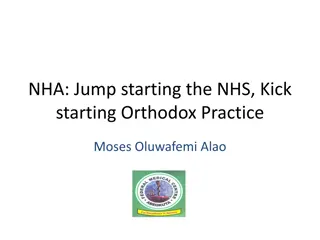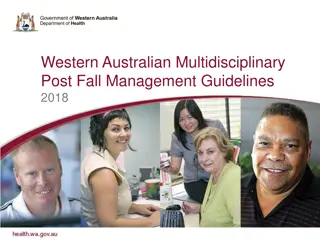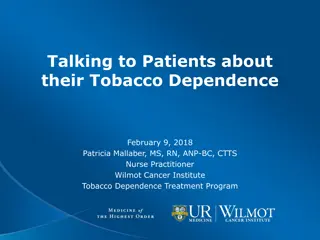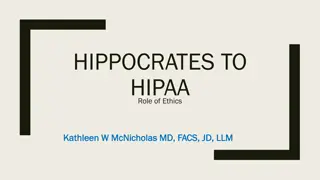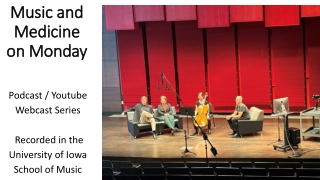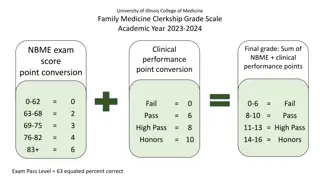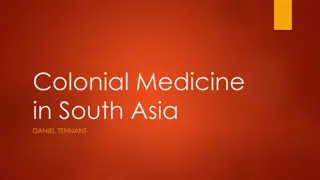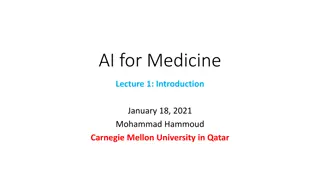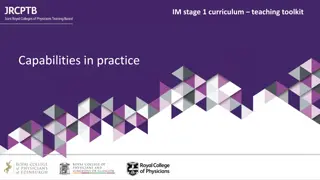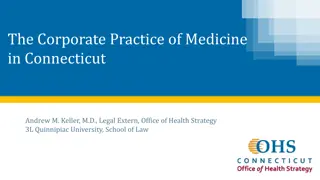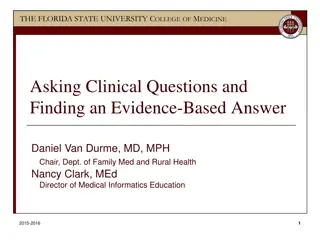Practical Guide to Travel Medicine for Healthcare Professionals
Every year, millions of Australians travel abroad for various reasons, yet only some seek medical advice. This practical guide emphasizes the importance of considering individual traveler needs, destination health risks, special requirements, recommended and compulsory vaccines, and written information for different types of travel destinations. By following these guidelines, healthcare professionals can provide effective pre-travel medical care and ensure the safety and well-being of travelers.
Download Presentation

Please find below an Image/Link to download the presentation.
The content on the website is provided AS IS for your information and personal use only. It may not be sold, licensed, or shared on other websites without obtaining consent from the author. Download presentation by click this link. If you encounter any issues during the download, it is possible that the publisher has removed the file from their server.
E N D
Presentation Transcript
So, you would like to practise Travel Medicine ?
A little background 1. Every year, more than 7.6 million Australians travel abroad. more than 4.4 m travel for holidays or leisure more than 3.1 m visit friends and relatives, or travel for business 2. Only some will seek any medical advice. often that will be inappropriate or excessively costly, or may be confined to vaccinations only. The following system might make your job a little more effective.
Always consider: 1. The traveller Age, gender, occupation, reasons for travel, fitness to travel, travelling alone or in a group (sports club, service club, etc), organised tour etc. What will the traveller be doing at his/her destination? Where will they visit? 2. The destination Consider local health risks and consider safety-after discussing above. Your traveller s safety is not guaranteed because they have paid a large sum. Always advise accessing Australian Government warnings (smartraveller.gov.au)
Special needs: 1. The aged, the very young 2. The pregnant or breast feeding 3. The sick The immunocompromised Those with chronic disease (eg diabetes, heart failure, respiratory distress, mental health issues, etc.) Those with recent surgery (espthoracic or abdominal surgery) Those with reduced mobility 4. Travellers returning to birth place or home 5. Group travel
Consider the following vaccines: 1. The routine vaccines, we should all have Tetanus and diphtheria Seasonal influenza Hepatitis B Polio Mumps, measles, rubella and varicella Pneumococcal disease (in the aged or immunocompromised) Meningococcal C vaccine 2. The recommended vaccines, depending on destination Seasonal influenza Hepatitis A and typhoid Japanese encephalitis, rabies Meningococcal disease (A,C,W and Y) Cholera Tick-borne encephalitis vaccine (not usually available in Australia)
Compulsory vaccines: Yellow fever (if travelling to yellow fever risk countries) Travellers to the Hajj/Umra Meningococcal vaccine (A,C W and Y) Pneumococcal vaccine (>65, immunocompromised, etc.) Seasonal influenza Travellers on working holidays (eg USA, France) BCG vaccine (in certain work environments)
Written information: Common First World destinations (eg UK.NZ, USA) - minimal information is usually needed Common Third World destinations (eg Thailand, India, Peru, Kenya, etc) - maximal information is usually needed Recommended vaccinations Malaria risk, prevention; other insect diseases Diarrhoea risk, management Sexually transmitted infections Animal (mammals, snakes) bites Marine hazards/altitude sickness Security Medical care
Travel kits: Management of diarrhoea -kits will vary according to destination (Areas A, B and C) Clean water - access to sterile water (chemical, boiling, filtration, etc) is very important First aid kits -kits will vary according to destination and activity (eg distance walking, rough terrain, risks of bites, sunburn, etc.) Medication kits - antimalarials, simple analgesics, antihistamines, antiseptic ointments, sunscreen, etc. Insect protection/management - insect repellents (DEET, picaridin) - insect protection (bed netting, head nets, etc.)
Major emergency kits: Management of major trauma/surgery -Resuscitation/anaesthesia equipment - Basic life-support equipment - Evacuation support Management of cardiac/respiratory arrest -Automatic external defibrillator - Intubation and availability of oxygen Coma and dehydration - Intravenous fluids and giving sets. Medical kits - A range of surgical instruments -A full range of medications
Malaria prophylaxis: Doxycycline (100mg) Doryx, Doxy, etc 1 tablet daily with food, starting 1 day before entering and continuing for 28 days after leaving, the malarial area. Contraindications: pregnancy, breast feeding, renal impairment Complications: thrush, photosensitive rash, oesophagitis Atovaquone/proguanil (250/100mg) Malarone 1 tablet daily with food, starting 1 day before entering and continuing for 7 days after leaving, the malarial area. Contraindications: pregnancy, breast feeding Complications: GI upsets, headaches, mouth ulcers, itching Mefloquine HCl (250mg) Lariam 1 tablet each week, starting 2 weeks before entering and continuing for 2 weeks after leaving, the malarial area. Contraindications: breast feeding, scuba diving, epilepsy Complications: psychiatric symptoms, vivid dreams, cardiac arrhythmias.




